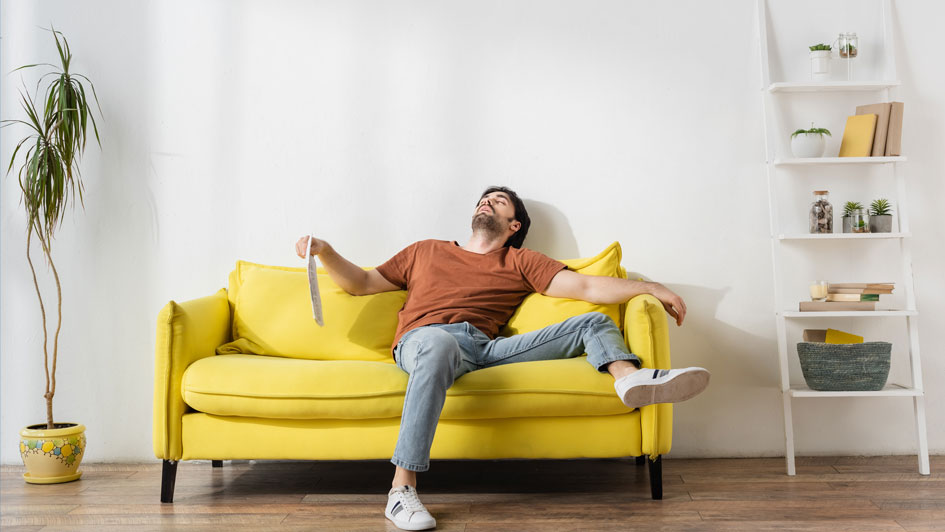Living in Port St. Lucie means enjoying sunny days and fresh coastal breezes. But while the air outside might feel clean, the air inside your home can be a different story. Indoor air quality is something many people overlook until it begins affecting their comfort or health. From allergens and dust to humidity and poor ventilation, there are many factors that impact the air you breathe indoors.
Whether you’re spending time relaxing at home, working remotely, or raising a family, it’s important to understand how indoor air quality affects your daily life. By learning what influences your home’s air and how to improve it, you can take steps to create a healthier and more comfortable environment.
Why Indoor Air Quality Matters More Than You Think
The air inside your home may seem clean, but it often contains more pollutants than outdoor air. This includes microscopic dust particles, mold spores, pet dander, chemicals from cleaning products, and volatile organic compounds (VOCs) from furniture or flooring. In Florida, where homes are sealed tightly to keep out heat and humidity, poor airflow can make indoor air pollution worse.
Over time, breathing in contaminated air can lead to health problems. Common symptoms include headaches, fatigue, itchy eyes, congestion, and asthma flare-ups. For children, seniors, and people with respiratory conditions, indoor air quality becomes even more important.
What Affects the Air Inside Your Home
Several things influence indoor air in Port St. Lucie homes:
-
Humidity Levels: Florida’s climate is naturally humid. If your home’s humidity isn’t balanced, it can encourage mold growth and dust mites, both of which affect breathing and indoor comfort.
-
HVAC Maintenance: Your heating and cooling system plays a big role in circulating and filtering the air. When filters aren’t changed regularly or the system isn’t cleaned, pollutants get trapped and spread through your home.
-
Ventilation: Without proper airflow, indoor pollutants have nowhere to go. Bathrooms, kitchens, and laundry rooms should all be ventilated to keep moisture and odors from lingering.
-
Household Products: Everyday cleaners, sprays, and air fresheners can release chemicals into the air. Even building materials like carpets or adhesives may emit fumes over time.
-
Pests and Pets: Dander, droppings, and hair from pets or rodents can increase allergy symptoms and contribute to poor indoor conditions.
How to Tell If Your Indoor Air Needs Improvement
Not all signs of poor air quality are obvious. Some indicators can be mistaken for seasonal allergies or regular household odors. Here are a few signs to watch for:
-
You notice a musty smell or frequent mildew.
-
There’s visible dust buildup even after cleaning.
-
Your family often experiences sneezing, coughing, or eye irritation indoors.
-
Mold appears around vents, windows, or in corners.
-
People feel better when they leave the house for extended periods.
If you’re unsure, consider having your home’s air professionally tested. This can help pinpoint the specific issues and guide the right solutions.
Simple Ways to Improve Air Quality on Your Own
While some changes may require professional help, there are a few steps you can take right away:
-
Change Air Filters: Replace HVAC filters every 1–3 months depending on usage and household needs.
-
Use a Dehumidifier: Keeping your home’s humidity between 30–50% can help prevent mold and reduce allergens.
-
Keep Floors Clean: Vacuum with a HEPA filter, mop regularly, and consider using rugs that trap less dust.
-
Open Windows When Possible: Fresh air can flush out indoor contaminants. Just be mindful of high pollen days.
-
Choose Natural Products: Switch to low-VOC or fragrance-free cleaners and limit the use of air fresheners.
-
Control Pet Dander: Brush pets often and bathe them regularly to keep dander under control.
When to Call a Professional HVAC Technician
Some indoor air problems go beyond surface-level cleaning. If your home’s air still feels heavy, damp, or uncomfortable after basic steps, it may be time to contact an HVAC expert in Port St. Lucie. A professional can inspect your system for hidden issues like dirty ducts, inefficient filters, or poorly balanced airflow.
They may also recommend solutions such as:
-
Air Purifiers: These systems remove pollutants and allergens before they circulate through your home.
-
UV Light Filters: Installed in your HVAC system, UV lights help kill mold spores and bacteria.
-
Duct Cleaning: Over time, air ducts collect dust, pollen, and other debris. A thorough cleaning helps air move freely and stay cleaner.
-
System Upgrades: If your HVAC is outdated, replacing it with a newer, energy-efficient model can improve both air quality and comfort.
Why Local HVAC Services Matter in Port St Lucie
Choosing a local company that understands the climate and common air quality challenges in South Florida makes a difference. Local technicians are familiar with the unique humidity issues in this region and can tailor solutions that work best for your home’s layout and your family’s needs.
They’re also available when you need quick help—especially during those hot summer months when your AC is running non-stop. Regular service from a trusted local professional helps prevent breakdowns and keeps your system working at its best year-round.
Conclusion
Improving your indoor air quality isn’t just about comfort. It’s about protecting your health and creating a better living space for your family. Even small improvements, like swapping out filters or adjusting humidity levels, can make a big difference.
By staying aware of what affects your home’s air and knowing when to bring in a professional, you can breathe a little easier each day. Living in Port St. Lucie means plenty of sunshine and fresh ocean air—there’s no reason you shouldn’t enjoy that same fresh feeling indoors.
If you’re ready to take the next step, reach out to a local HVAC expert for an in-home consultation. Clean air is worth the investment.
